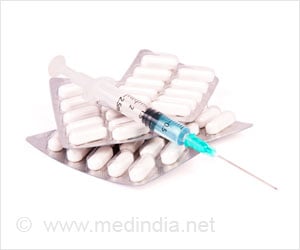Some Asian nations begin to consider more-progressive policies on illegal drug usage, according to RAND report.

‘Drug-free society could be achieved by reducing the global supply of illegal drugs, adopting more stringent policies, imposing harsh penalties and proper regulation of drug companies.’
Read More..




Meanwhile, some other nations -- most visibly represented by the Philippines -- are adopting even harsher policies on illicit drugs, including violent repression of drug distribution and use. Read More..
"Asian nations have long espoused the goal of a drug-free society, imposing harsh criminal penalties and even the death penalty on those involved with illicit drugs," said Bryce Pardo, lead author of the report and a policy analyst at RAND, a nonprofit research organization. "So it is surprising to see some Asian nations begin to go in a different direction and consider more-progressive policies."
The RAND report also dissects China's role as a focal point in the global supply of fentanyl, a powerful synthetic opioid that is responsible for a growing number of fatal drug overdoses in the U.S.
The report outlines the rapid rise of the drug industry in China, where there are now more than 5,000 pharmaceutical manufacturers and hundreds of thousands of chemical companies. While the industry is a leading source of many legitimate chemicals and pharmaceutical ingredients, its growth has made it easier for some companies to avoid regulations.
China's central government has promised to crack down on fentanyl manufacturers, but enforcement of such policies is typically done at the provincial level, where there is little infrastructure in place to regulate the drug and chemical industries.
Advertisement
Thailand's shift from harsh drug policies toward evidence-based treatment and reduced punishment appears to be motivated by the heavy burden previous policies have had on its prison system and an alarming increase in disease transmission related to needle-sharing.
Advertisement
The report notes that the illicit production and use of opioids and amphetamine-type substances are the greatest concern across Asia. There also are reports of rising trafficking and use of new psychoactive substances and ketamine.
But one challenge facing Asian nations is a shortage of reliable information about drug use, which is key to assessing the size of the problem and judging the influence of policies. "As in many countries, there is tremendous imprecision in the data available on the prevalence of drug use in Asia and the amount of money spent on these substances," said Beau Kilmer, a co-author of the report and co-director of the RAND Drug Policy Research Center. "Policy shifts are occurring and these data gaps will make it difficult to evaluate the consequences of these changes in the near and longer term."
Source-Eurekalert









